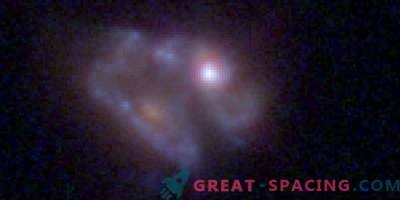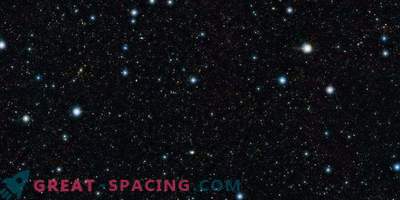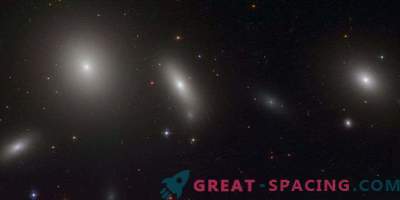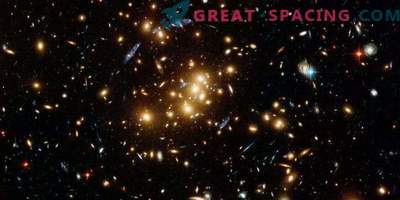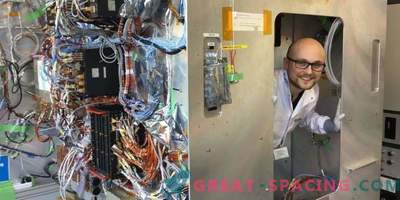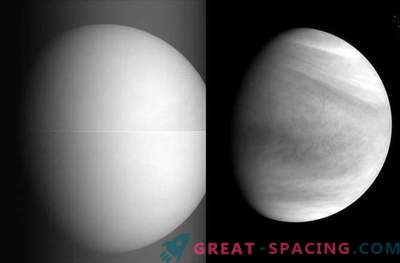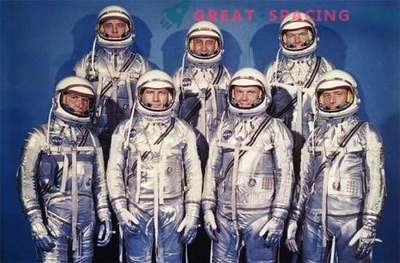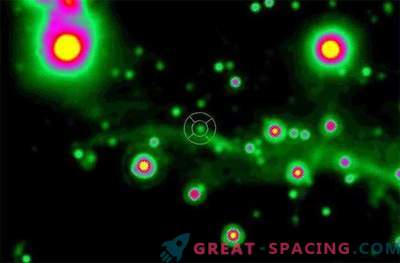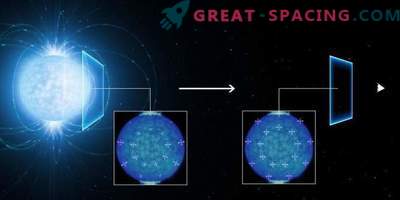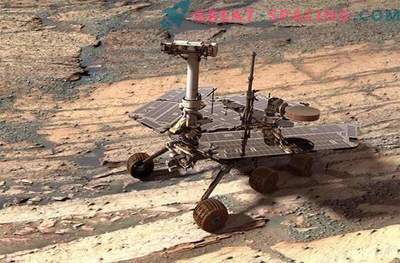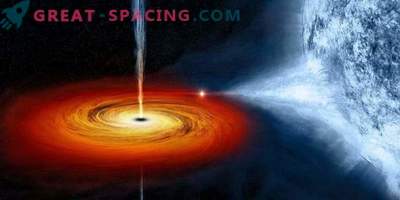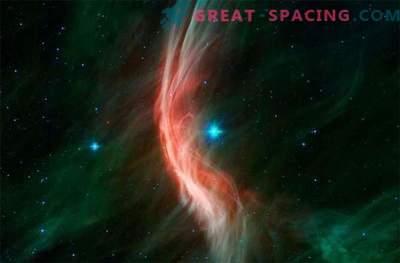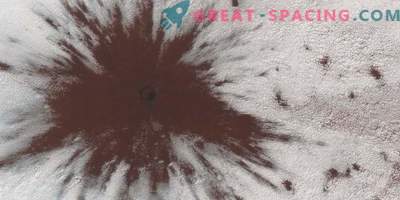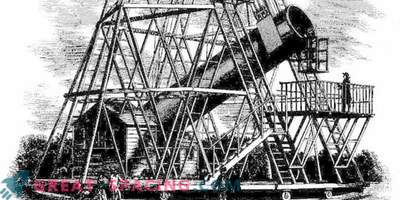
Galaxy Tadpole - a broken spiral showing gas flows separated by a gravitational contact with a neighboring galaxy
Scientists used the world's most powerful telescopes to conduct one of the largest analyzes of molecular gas. This is the raw material in which stars are born. As a target, three maximally distant galactic clusters located at a distance when the age of space was 4 billion years old were used.
Clusters are rare universe regions composed of dense groups of hundreds of galaxies. Such an array contains trillions of stars, huge streams of hot gas and dark matter. For a start, the Keck Observatory and the Very Large Telescope in Chile were involved. They confirmed that 11 galaxies act as star-forming components of three massive clusters. Next, Hubble took the necessary pictures, displaying their amazing appearance.
The radio waves were fixed with the help of ALMA, which made it possible to catch the molecular gas in the early Universe. This helped to understand exactly how many galaxies had to create stars. The properties of the found galaxies were compared with the “field” ones (they come across in a more typical medium and with fewer neighbors). The researchers were surprised, because the representatives of the clusters had a large supply of molecular gas than the field. The strangeness is that, according to the generally accepted assumption, galaxies in clusters interact and quickly squander gas, due to which stellar birth ceases.
Researchers think that there is a process in the clusters that stimulates a small part of the gas to actively create stars. This study does not have the answer to the question, but he managed to determine the exact amount of gas in the early Universe. The SpARCS team used Spitzer for infrared vision and is about to connect the Keck Observatory and the Hubble telescope to continue exploring the area and see how long the galaxy has been able to form stars.

